It’s late afternoon on Friday and I’m headed to Krunchix, a small coffee shop situated at the Metropolex mall in Naalya, 15km East of Kampala city. In a little while, I’ll be catching up with a gentleman who, in his few decades of existence, has been on an arduous and turbulent journey to have the memory of his riveting sounds etched on every soul that gets the privilege of listening in. Not many names in the Ugandan music industry have spiraled to the place of acclaim in a short span like Joseph Sax has. Except it didn’t start yesterday!
Kizito Joseph was born thirty-three years ago to Mr. Kizito Muhammedi and Ms. Nalumansi Annet in the small town of Mbiko on the outskirts of Jinja city in Eastern Uganda. He’s the second born of three siblings. Obviously, Sax isn’t his real name, but, rather, wordplay to alert you to the fact that he’s a saxophonist. His mom, who passed away at the tender age of thirty-two in 2000, undoubtedly played a crucial role in igniting Joseph’s illustrious music career. Ms. Annet, a devout Catholic, was both a fashionista and singer. She flaunted her vocal capabilities at the local St. Charles Lwanga Church (commonly known as St. Kalooli) in Mbiko. Joseph would go on to benefit severally from his mother’s faithful service at the church, as he studied on scholarship at the St. Peter’s Nursery and Primary school.
The arrival of the missionaries in the late 1800s was foundational in reshaping the landscape of societal beliefs and lifestyles in this part of the world. As the presiding Priest at the St. Charles Lwanga Church, Father Wijnand Huys, a Catholic missionary from Europe, had the aspiration of steering the local youths away from peer groups and indulging them in creative and developmental activities. This noble ambition inspired him to mobilize and dispatch a consignment of brass musical instruments from the Netherlands. When the shipment made landfall, it was big news in town!
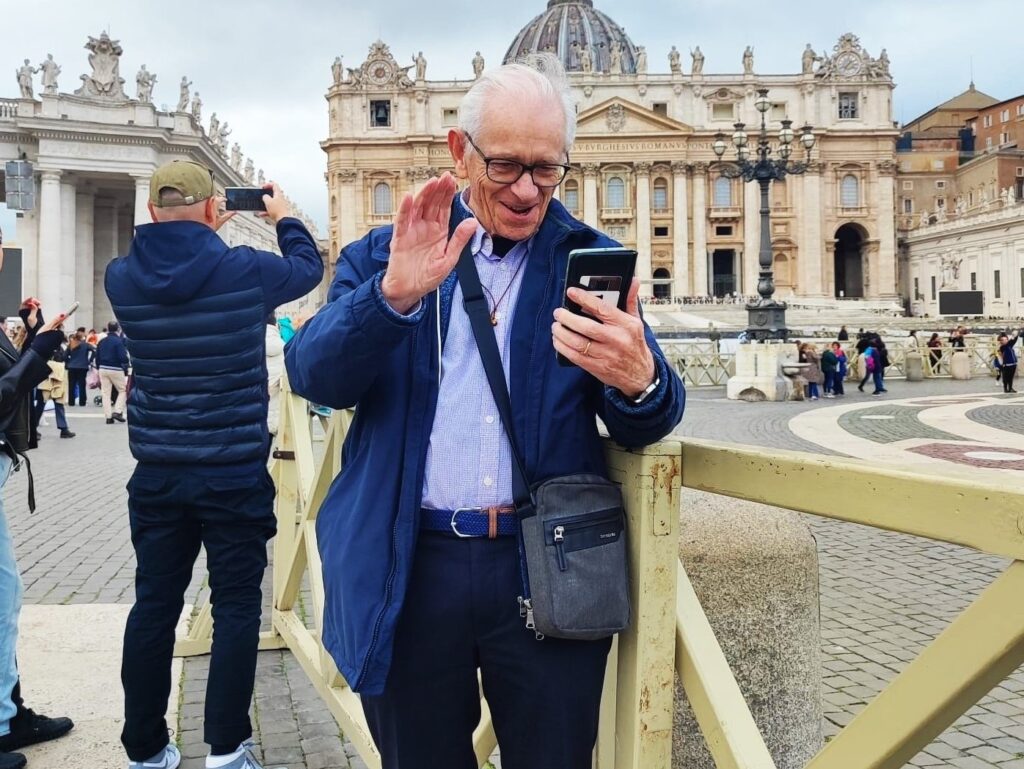
The announcement for an intake of learners soon made rounds and a mammoth of 400 ecstatic youngsters showed up to register for the free music lessons. Joseph was one of them! At this point, in school, he was in his primary six. What he and his colleagues weren’t told, however, is that the new trail they were treading would be anything but easy! And, so, the sieving process began. For starters, everyone had to learn to sound the bugle before moving on to the next level. If you thought life’s hard on your end, try producing a sensible musical sound from this wind instrument that has neither valves nor keys! Now you understand why the number of students whittled down from 400 to 35 in no time. That’s how the Mbiko Brass Band came about.
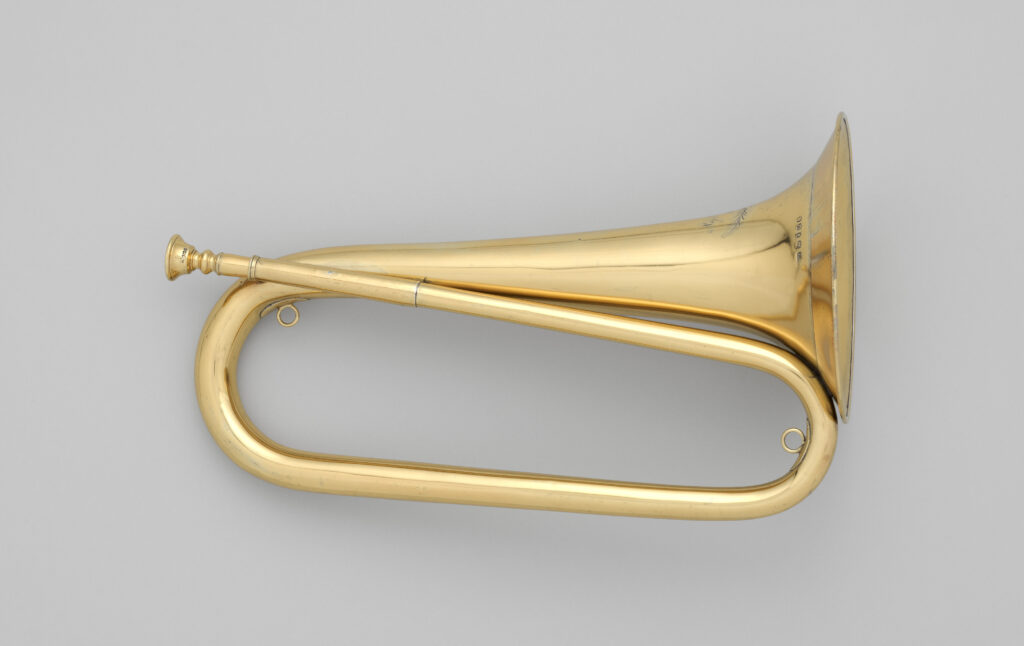
Joseph and a few others progressed to the next level. While most of his mates advanced to play other wind instruments, Joseph initially did the snare drum, until fate seemed to decide otherwise. His first music teacher was an exceptionally gifted Ugandan gentleman called Mr. Mugulusi Paul, who is now deceased. Mr. Mugulusi taught in the melodic section while Mr. Kagoda, another tutor, taught percussion and rhythm. During his secondary school, in form-2, he met two Dutch music tutors: Mr. Harry Walters and his daughter, Petra Walters, who had been flown in by Fr. Wijnand. Petra was an alto saxophonist! For his diligence with the brass brand, Joseph’s entire secondary school studies were fully sponsored .
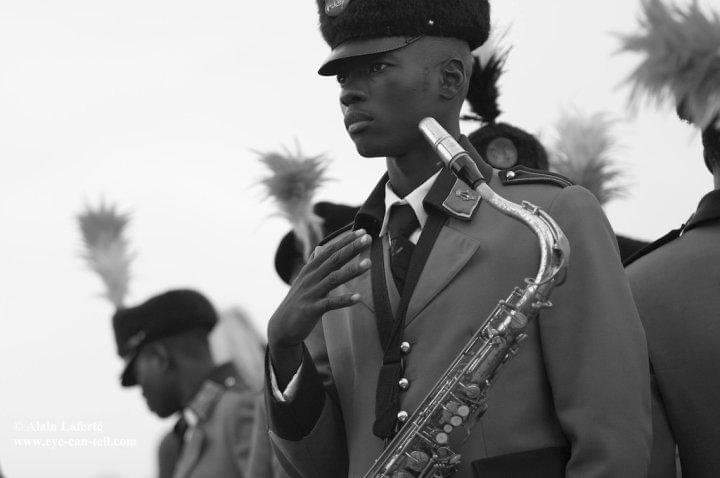
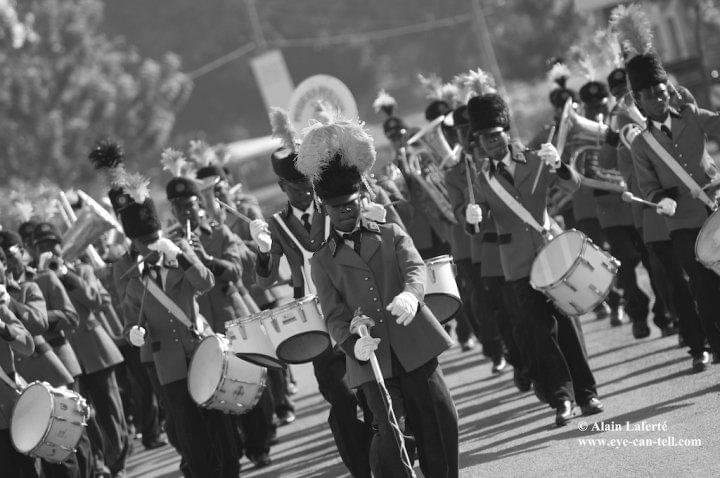
The year 2009 was pivotal in defining Joseph’s orientation in the industry, particularly because this would be the first time he launches out into the already congested and unforgiving world of professional musicians. The setup would be completely different from what he was used to: from playing classical music in a brass band, he was now about to start performing on stages alongside diverse instrumentalists and singers as well.
That year, he met a singer called Harriet Kisakye. For somebody his age—19 he was at the time—Harriet was quite impressed by Joseph’s level of skill. Thus, she asked him to join her team on a two-weeks-long music safari out of town where he would earn about $3 a day. In that period, he’d been living with his granny in Jinja. For two hectic weeks, none of his family; not even granny had a sense of where exactly Joseph was. However, she somehow trusted that he was responsible enough not to get into trouble. It wasn’t long before Joseph pulled out of the tour prematurely as he became home sick!
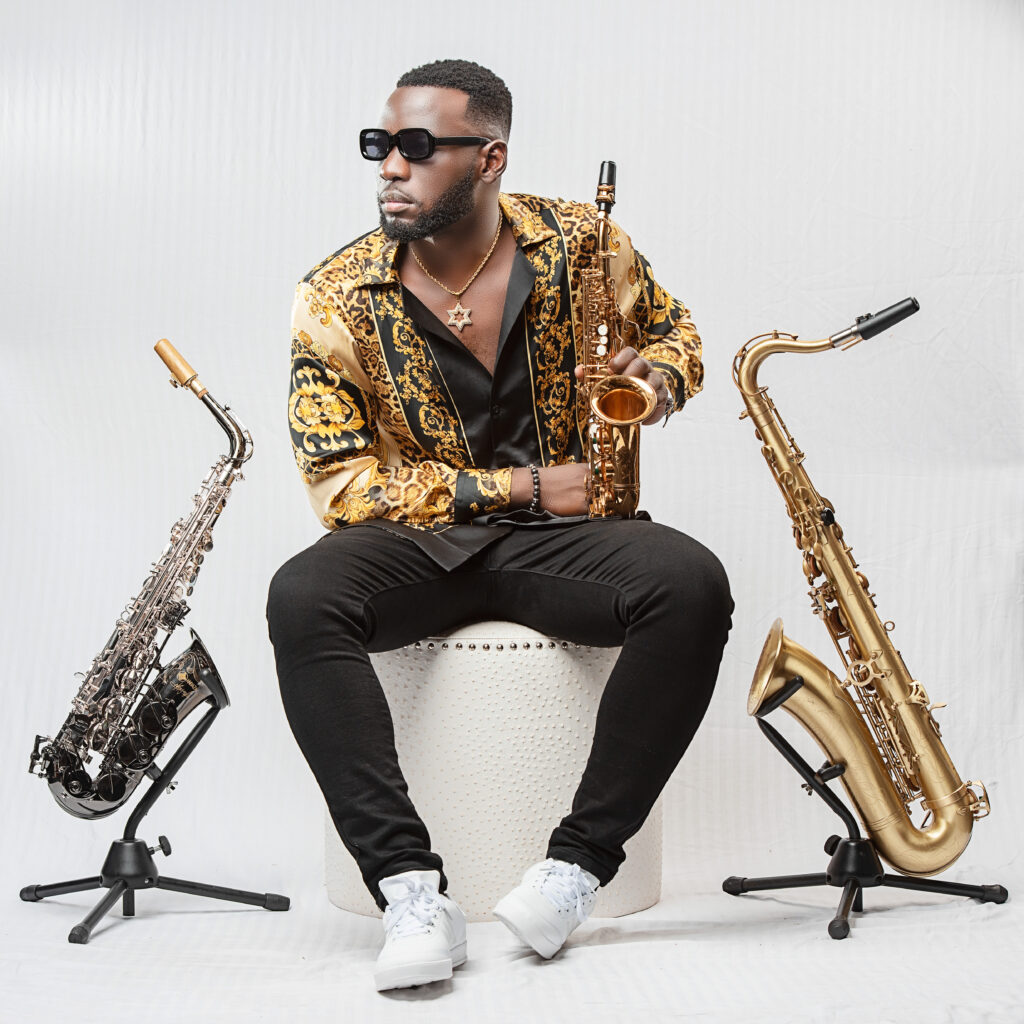
In August 2009, he enrolled at the Uganda Film and Television Institute for a two-and-half-year program on Scripting and Photography, which had been fully sponsored by Ms. Petra Walters. Whereas the humongous task of juggling studies and being an entertainer was burdensome, Joseph learnt to roll with the punches in his pursuits. The lure of a quick buck performing at a gig for a few hours was simply irresistible. Subsequently, an opening came up in 2010 for him to join the Gagamel Band owned by Bebe Cool, where they often performed at shows.
To make ends meet, Joseph and some of his mates literally roamed places making pitches for gigs. At an agreed fee—usually small—you had their full attention for a few hours. This normally happened when he wasn’t tied up with the Gagamel Band. On one occasion during the week, he and two colleagues: one a trombonist and, another, a trumpeter, went to the Lunch-Hour Fellowship at Fido Dido along Kampala road and asked if the leader of that congregation was interested in their services. The doors instantly swung open and they were gladly welcomed in. For the equivalent of about $1 each day, Joseph and his friends blew to the sounds of praise and worship from noon to 2pm. From there, he would proceed to the New Life Bar in the evening, where he fetched a meager $3 a day.
It’s at one of the lunch-hour fellowship meetings in 2010 that Joseph met a gentleman called Godfrey Kwezi. Not only was Godfrey a singer, but he was also well established in the music arena and had a wealth of invaluable contacts. Additionally, he worked as a Producer and Songwriter at the Firebase Records, a music production outfit belonging to songster (now politician) Bobi Wine, aka Hon. Robert Kyagulanyi. Godfrey would soon invite Joseph to play the saxophone at his home church—Passover Church, Kamwokya—where he got introduced to a host of prominent musicians that had been serving there. One of those is renowned Producer, Paddy Kayiwa Mukasa, commonly known as Paddyman. “These were the people we celebrated while in secondary school. I was so happy to be playing alongside them.” Joseph narrates.
With time, Joseph began to regularly receive calls from these Producers asking him to go play the saxophone for top artistes whose projects they were working on. For example, he performed on many of songstress Iryn Namubiru’s songs and other musicians’, like Mesach Ssemakula, Jose Chameleone, Julie Mutesasira, to name a few.
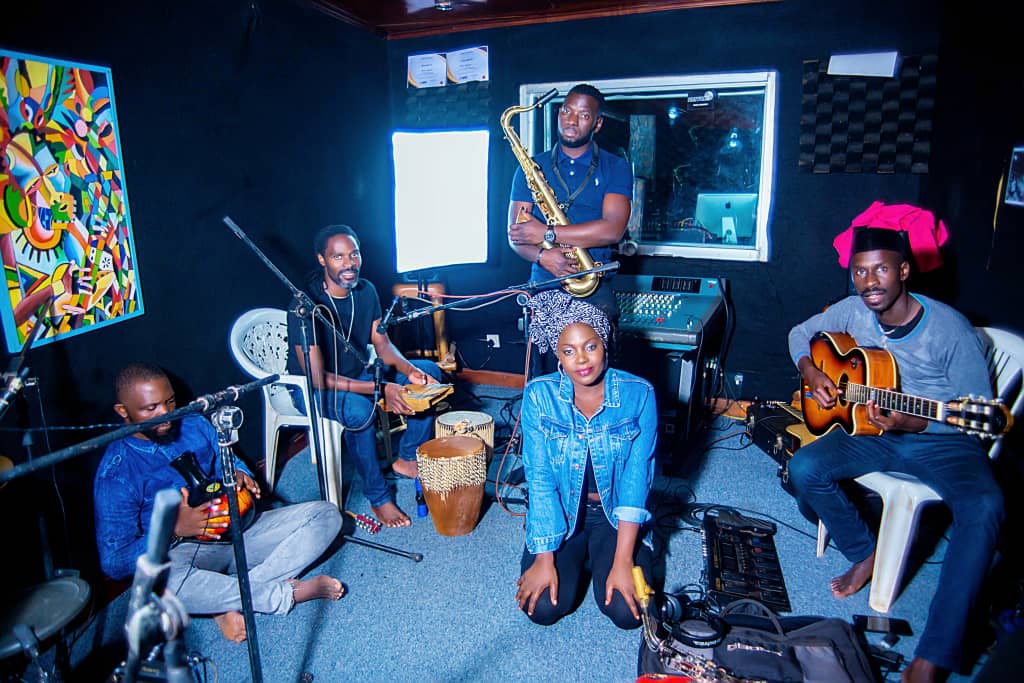
While attending class one day, he receives a phone call from Godfrey who asks him if he could make it to the Firebase studios later that night to record a tune for an ad that required a saxophone line. “When I got there, it wasn’t an ad. It was a song!” Joseph recounts. The song was called For better, For worse by Bobi Wine. Star struck, this was the day he met Bobi Wine for the first time. “The recording went smooth! We had a good conversation and he started calling me faaza (priest),” recalls Joseph. The reason he earned the frisky faaza nickname was because, while doing the introductions, Godfrey had informed Bobi Wine that the saxophonist was a devout Christian who neither drank alcohol nor smoked!
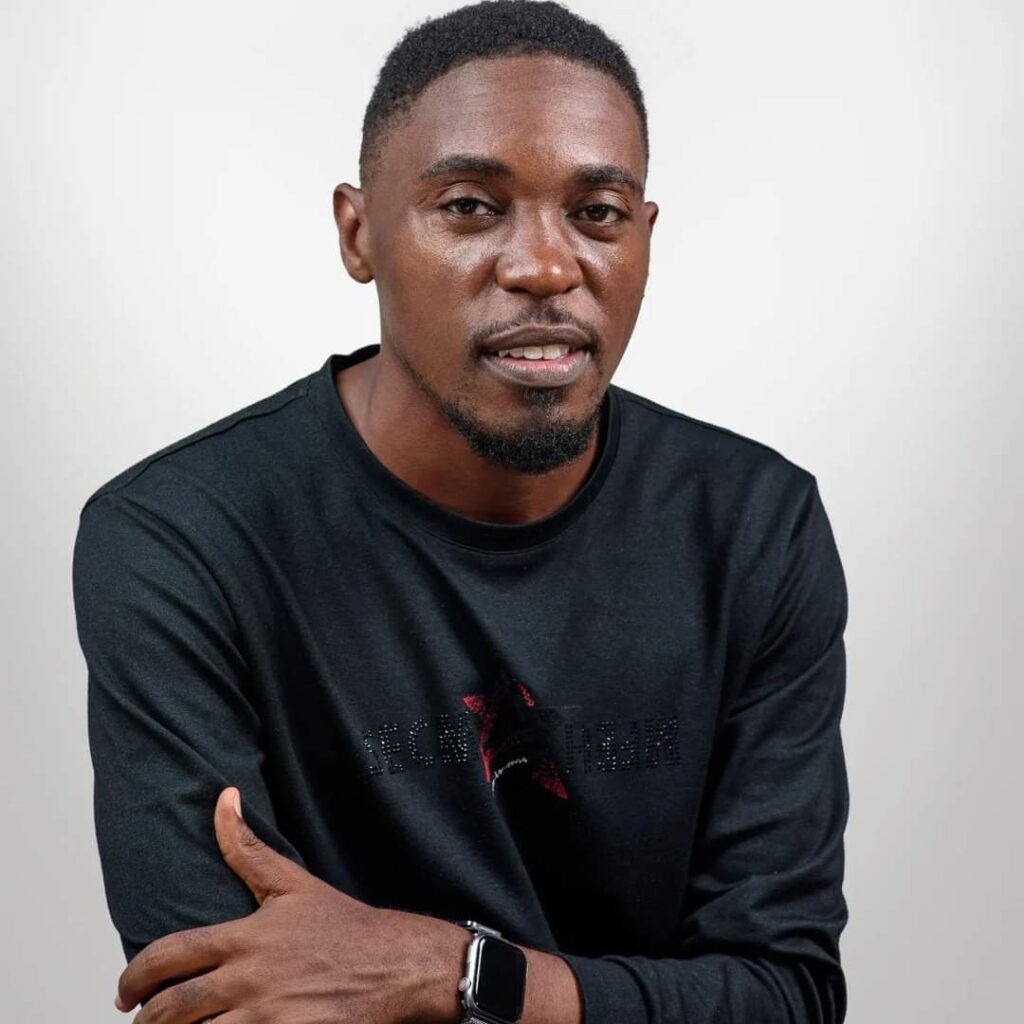
About mid-2010, Tony Baguma, a multi-talented minstrel approached Joseph regarding a vacancy for a saxophonist on their Zawuka Band that he could occupy if he was interested. Joseph auditioned for the position and passed. “I didn’t sound so good, but they gave me the opportunity.” he recalls.
One afternoon on his way to studio for a rehearsal, Joseph’s phone rings. On the other end of the call was Bobi Wine who asked, “Faaza oliwa?”, which’s to say, ‘Priest, where are you?’. He needed to know if Joseph could make an urgent trip to Luzira—a 25-minute drive South-East of Kampala city—for a video shoot. The shoot was for the For better, For worse song that they had previously worked on at studio. Bobi Wine also inquired if Joseph had a suit to wear on set. Unfortunately, he had none and had to borrow from a friend, Ronie Mutabaazi, whom he had met as a singer with the Gagamel Band. And, so, his relationship with Bobi Wine gradually grew, as he went on to feature on several projects of his.
In a bid to further his craft and develop a unique style, Joseph opted to focus on engagements that would indulge his passion—jazz. The Zawuka Band presented the opportunity for him to explore and ground himself in this genre. At the Zawuka Band was a gentleman called James Ssewa who played the conga drum. James was also the head of a newly-formed group at the time, the Janzi Band, which was just as much sourcing a saxophonist following the departure of their own. Joseph would eventually go on to officially join the Janzi Band in September 2011.
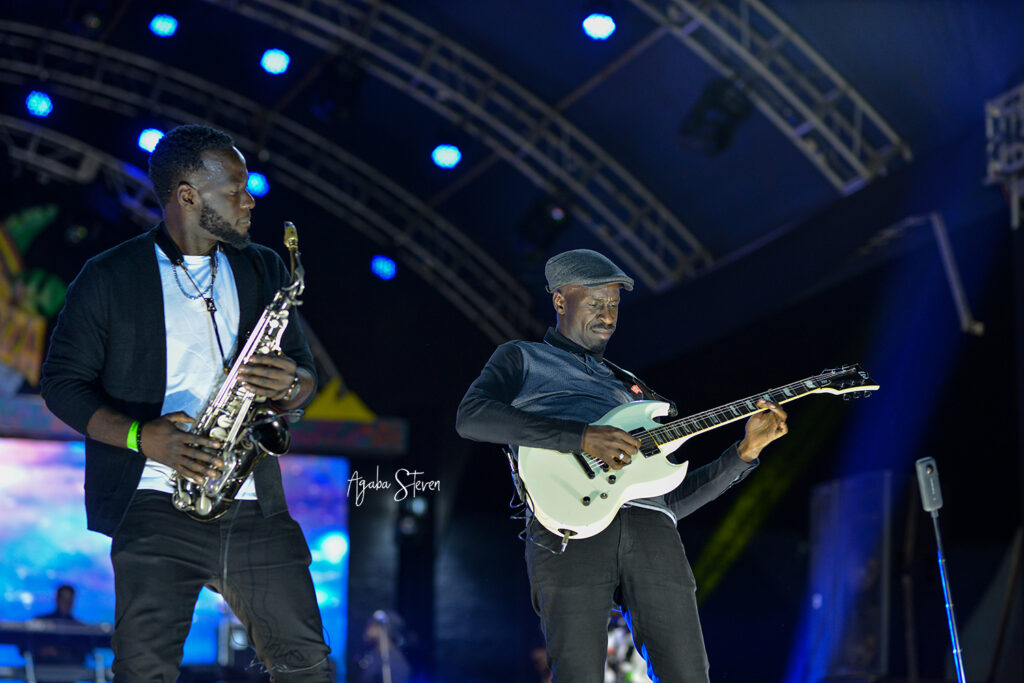
With the amount of exposure he was quickly amassing in addition to the radiance of his emerging star; it was certainly impossible for Joseph not to light up the radars of the saxophone kingpins of the time—the likes of the legendary Moses Matovu, the iconic Isaiah Katumwa, or even the distinguished virtuoso, Brian Mugyenyi.
In 2011, Joseph met Brian for the first time at one of the Janzi Band gigs. When the MC of the day made the introduction of Brian as the best saxophonist in East Africa and the next performer; Joseph, quite terrified, literally put his instrument down and stepped aside to watch!
“Brian Mugyenyi is a saxophonist I used to hear about. His saxophone looked new. He was so organized; he was very smart and dressed nicely!” he recalls. “I had never heard anybody play saxophone like that! If you had looked away, you would think it’s either Gerald Albright or Dave Koz playing!” Joseph almost laments. Because of the stark contrast between his level of skill and Brian’s, when the Janzi Band was invited back on stage, Joseph developed cold feet about returning! “I felt embarrassed!” he recollects.
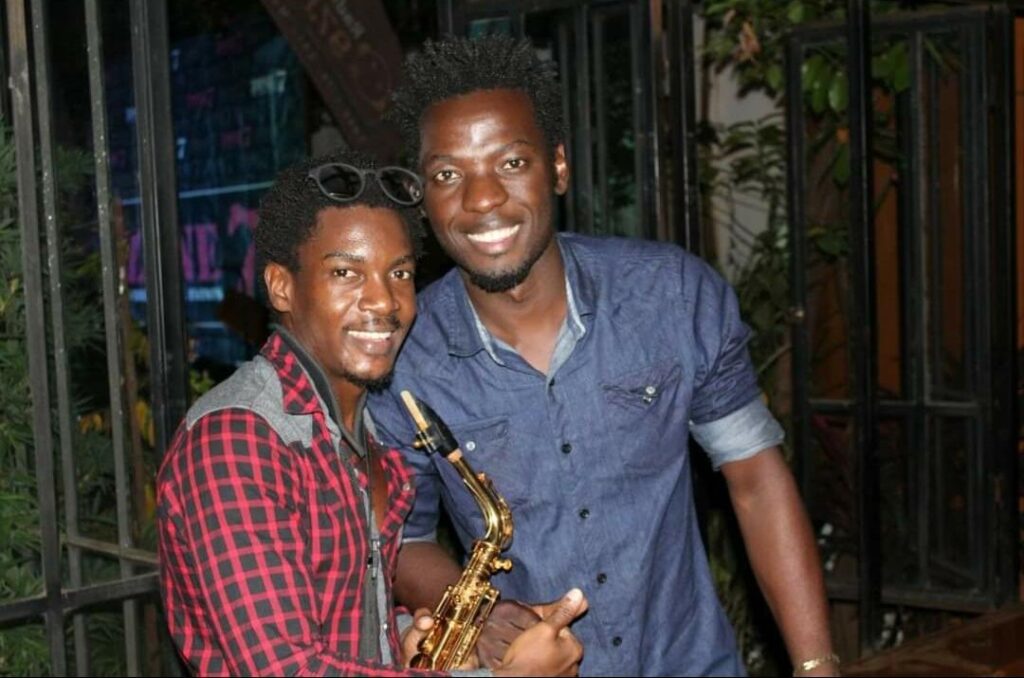
After the show, Joseph walked straight to Brian, introduced himself and told him he needed help. “That very day he gave me tips and we became friends right from that day!” he says. Thenceforth, Brian often monitored his new protégé’s progress and even went as far as lending him his personal saxophone—an extremely rare practice in those circles—whenever his developed mechanical issues. Ultimately, he inspired Joseph’s exponential growth. Also, in 2013 at Zone-7 where the Janzi Band performed on Wednesdays, Joseph became the unsuspecting subject of the critical ear of Isaiah Katumwa—who happened to be in the audience a number of times while the band played.
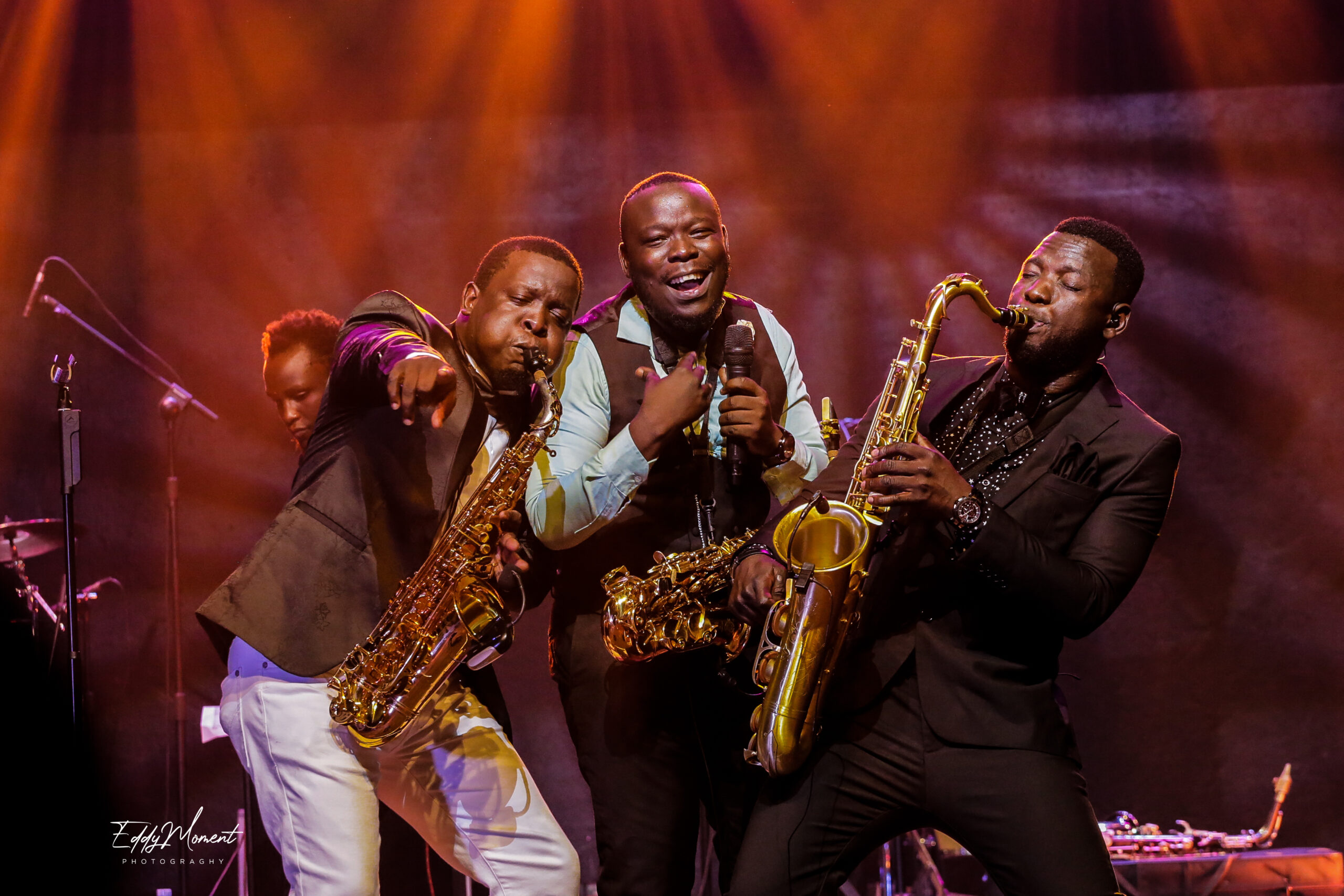
For a while, Joseph shuffled between churches until 2013 when he was introduced to Prophet Elvis Mbonye‘s Zoe Fellowship by somebody called Pr. Danny, whom he had originally met at the lunch-hour fellowship in town. He casually joined the Zoe Fellowship but soon got firmly rooted there as their worship team’s saxophonist, where he plays to date. Following numerous personal encounters with the Man of God who has given him counsel not only regarding his private affairs, but especially the course of his music; Joseph’s life and career seemed to suddenly catch a breath of fresh air. Before then, he was at the crossroads and had on multiple occasions seriously contemplated hanging up the gloves and returning to film school.
Joseph Sax has since attained a marked elevation in his inventiveness and mastery of his craft. While his first-ever individual recording was the famed instrumentation of Jose Chameleone’s valu valu back in 2012; he went on to release his first original composition, Koona, in 2015, which he promptly followed with a number of captivating singles. He’s also done jazz renditions for a couple of hit songs, most notably, the late Elly Wamala’s Viola.
After resigning from the Janzi Band in 2016 to pursue a solo career, Joseph conceived his second album in 2017. The direction of it became vivid in 2021, and in October 2023, he hosted a lavish listeners’ party which doubled as the launch of his Ascension album, at the Protea Skyz Hotel in Kampala. The Ascension jazz album carries heavy worship undertones occasionally spiced up by the magical fingers of guitar maestros Charmant Mushaga and Michael Ouma with whom Joseph has performed on numerous platforms.
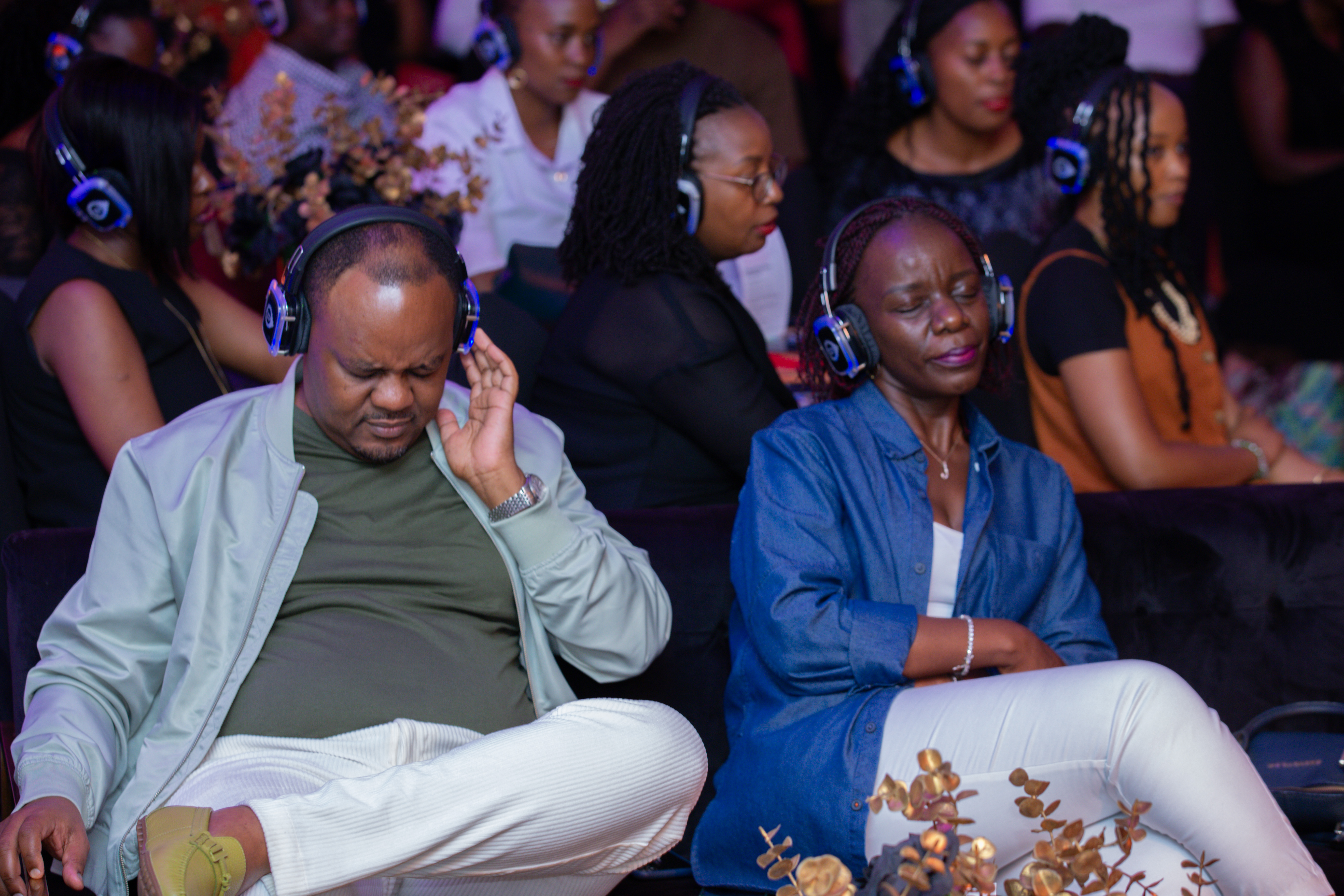
Joseph has received several local and international nominations in the category of best instrumentalist. In 2020, he beat Jamaican saxophonist Dean Fraser to scoop the Best Instrumentalist award at the 38th Jamaica-based International Reggae and World Music Awards (IRAWMA).
This December, the Protea Skyz Hotel will light up to the second edition of the Christmas-themed Silent Night Jazz show, a brainchild of Joseph’s. He’ll be the star performer, which’s why you should buy your ticket now, or visit www.josephsax.com for details. While at it, allow your soul to get blown away by the soothing sounds of Joseph Sax’s warm and expressive tunes: available on iTunes, Spotify, Audiomack, Deezer, and Boomplay.

Join the conversation on X:
Never heard of Joseph Sax. I am blown away, got my new iTunes play list.
Eh! Clearly you’ve been away for long! But yeh, he does great stuff. Welcome to the fans’ club!😎
You would make anyone follow your writeup consciously or unconsciously by the magic you apply to the script…. Clearly the Talent is evident both for the Saxophonist and the script written…. Well done.
😊Thanks Evelyn.
o wow.Joseph’s story is atypical story of a humble beginning.Look how much his achieved by now.It still takes us back to people loving what they do…where yo talent is,there yo welfare will be.Save his Contact for some of us..
Yeh. Compelling testimony! His business contact is down there in the story!